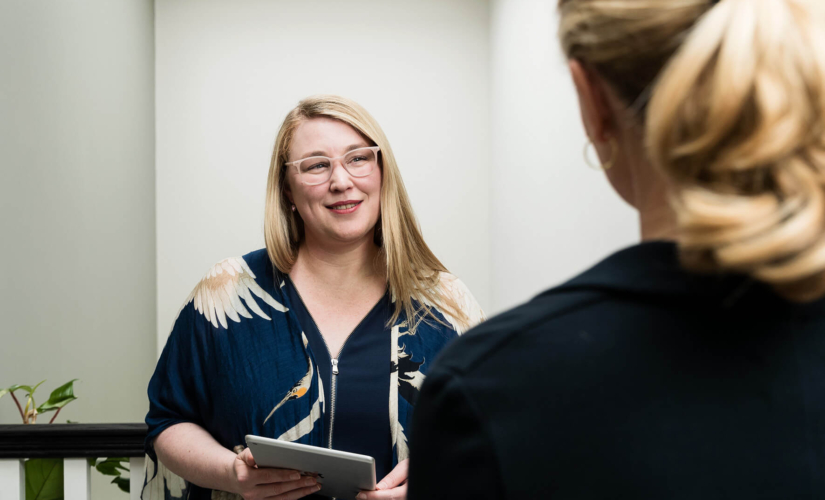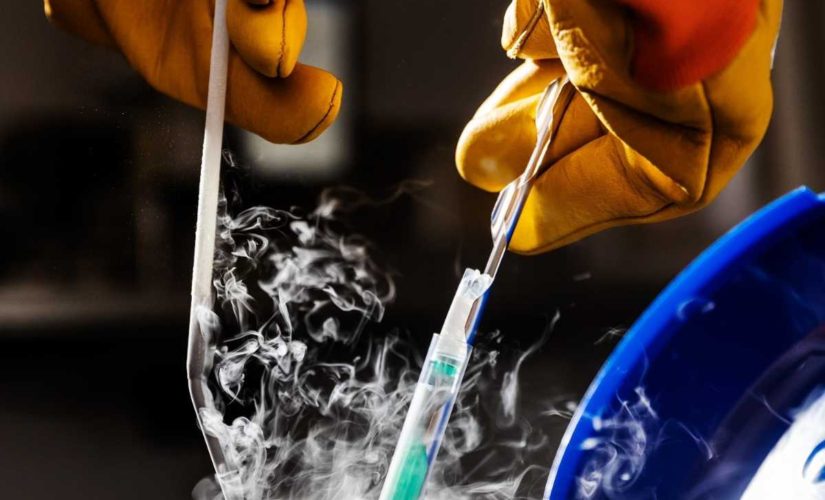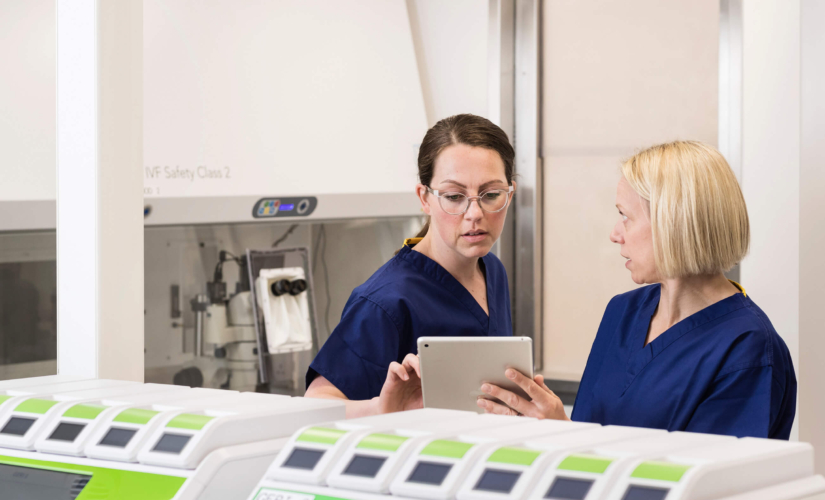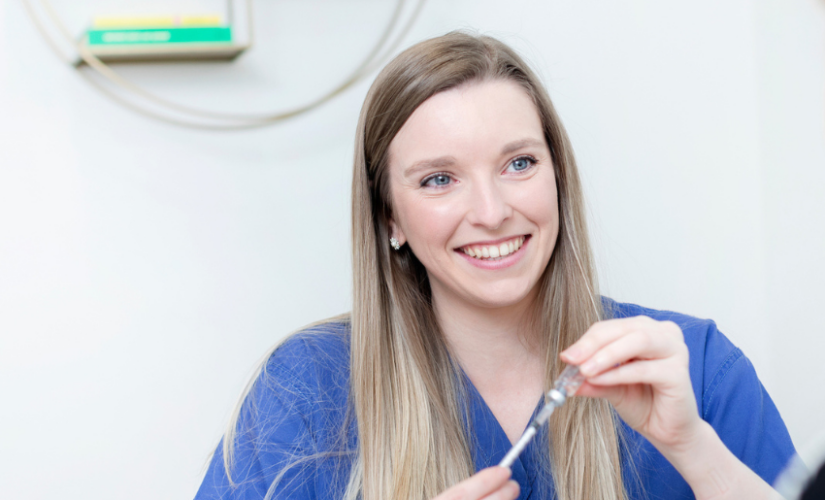Our Nurses FAQs
Our team of nurses have pulled together the below frequently asked questions, should you need help.
Questions before I start my cycle
Cycle day 1 is when you have fresh red bleeding before 6pm. If the fresh red bleeding starts after 6pm, cycle day 1 is the following day.
If your cycles are normally quite light or you never have fresh red bleeding, please contact the nurses when you notice your cycle starting.
If your period arrives on a weekend, you can contact the nurses by emailing them. On a Saturday, if the nurses are still in the clinic working, they will contact you to book your appointment accordingly.
If your period starts on Saturday afternoon or on Sunday the nurses will be in touch on Monday morning to arrange your scan.
When you email, it is helpful if you put ‘URGENT – cycle day 1’ in the subject of the email to make it obvious to the nurses.
Please note: the nursing team are unable to book appointments from the emergency phone so please do email as soon as your period arrives.
The nurse will discuss this with you during your nurse consultation. Routinely we use Pharmacierge for all our patient’s treatment medications. Pharmacierge will contact you directly with the invoice. Once payment has been made, they will arrange delivery to your home. Please liaise with Pharmacierge directly regarding any payment/delivery queries.
It is not mandatory to have your virology blood tests at The Evewell, however we would recommend you do.
The HFEA (our regulatory body) require all virological screenings to be undertaken by a UKAS accredited laboratory, and the results need to be presented in a way that proves that. This can often be tricky for patients and we find that usually patients end up having to have those tests with us anyway.
This is something that can be discussed with you in more detail at your nurse consultation.
Yes, if you completed a full cycle through to egg collection/IUI within 3 months of having the bloods taken. We will require a copy of your results and evidence from your previous clinic containing the information of when your egg collection/IUI took place.
There may be some extra tests that we require on top of what your previous clinic has done. These are clinic policy and are required prior to having treatment with us. The nurses will be able to advise you of any extra tests needed if so.
We require your virology blood results on file before you attend for your baseline scan. We recommend getting the bloods taken 1-2 weeks prior to your period starting. The results take 2-3 days to come back to us and we will only be in touch if there is an issue.
The treatment planning team will be in touch with you to understand when you want to start treatment and your anticipated period start date.
The nurses will then contact you roughly 1- 2 weeks before your projected period to ensure everything is in place and you have your plan and medications organised.
It will depend on your individual plan. If you are not taking any prescribed pre-stimulation medication, you can continue to try naturally in the lead-up to your IVF cycle. If you are taking prescribed medication and you are not sure, please contact the nursing team for advice.
Medication FAQs
You are more than welcome to shop around for your medications if you wish, however, there are a few things to consider.
Not all pharmacies will have your medication in stock, and you will need to allow time for them to order it.
You must allow 3 working days for the nurses to arrange your paper prescription in the post. The pharmacy will require this before dispensing the medication.
Some pharmacies may not provide you with needles and syringes to administer the medications; you will need to source these elsewhere.
We predominantly work with Pharmacierge who dispense our patient’s medications at the correct temperature and with the right needles. They also keep us up to date with medication shortages.
After your nurse consultation, you will be sent an email with a variety of different injection video links relevant to your treatment cycle.
You will also be offered an injection teach when you are in the clinic for your first scan.
If you are still not sure how to do your injections, call the nurses and they will be more than happy to talk you through it.
The nurses will advise you when to take your medication. If the instructions state ‘morning’ you should take them between 6-9am. If the instructions state ‘evening’ you should take them between 6-9pm.
Occasionally, medications need to be taken at a more specific time, such as a trigger injection. The nurses will give you the exact time to take the medication if required.
You should take it as soon as you can as long as it is the same day and notify the nurses. If you remember the next day, please email the nursing team to inform them.
They will then be able to advise if you need to change your medications that day instead.
Unless specified otherwise, you should take your medication with food if possible. This will help to prevent any side effects such as nausea.
This is not something that we would recommend especially if the medication is partially used. You have no way of knowing how the medication has been stored or if it has been tampered with.
During your nurse consultation, side effects will be discussed depending on the medications planned for you. Headaches are most common with most fertility medications. Therefore, we recommend keeping well hydrated to prevent these. Other common side effects are bloating, heightened emotions and mild cramping.
Localised reactions to the injections are also common and normal. These can vary from slight redness, slight tenderness at the injection site and occasionally a stinging sensation too. If the injection site stays reddened, tender and is warm to touch, please notify the nursing team to ensure that it’s not due to an infection.
Yes, bruising is very common when doing frequent injections. Especially if you are taking anything that thins your blood, such as clexane and aspirin. It is nothing to be worried about, we would recommend you avoid the area until the bruising has healed.
The pharmacy will let you know if your medication needs to be stored in the fridge or not.
For non-refrigerated items, we recommend you store them in a cool cupboard, away from direct sunlight and external heat sources, such as a radiator.
For refrigerated items, they should be stored in your fridge, not too close to the back or in the door. Once you have started using the medication, it can be left out of the fridge for up to 28 days if it is kept below 25 degrees.
Yes, you can. If you are traveling with refrigerated items, you should keep these in a cooler bag with an ice brick to keep them cold. Wrap the ice brick in kitchen towel or a tea towel to avoid the ice directly touching the medication.
If you intend on flying, we recommend storing the medication in your carry-on luggage to avoid it going missing. Check with your airline if you need a letter covering your medications. If you do, the nurses can supply you with a letter. Please ask with a few days’ notice to allow time for it to be created and sent to you.
Cyclogest generally takes 20-30mins to be fully absorbed. White chalky discharge is very common, this is from the casing the medication sits in. If you are worried you are not absorbing the medication, you can speak to the nursing team and have your progesterone levels checked to ensure your progesterone is at an adequate level.
Oestrogen medication can go by many different brand names. To make things easier, we will prescribe you the generic name rather than the brand name. This allows the pharmacy to dispense what they have in stock allowing for a faster turnaround.
It does not matter if you change brands throughout your cycle, you will still be receiving the correct dose of medication.
If you would prefer to only use one specific brand, this is absolutely fine. Please notify the nursing team when requesting a prescription so they are aware to prescribe the brand instead.
You can drop these off to the clinic for us to dispose of safely or you can contact your local council and see if they will collect and dispose of them.
Some councils may charge you for this, but most do not. You may have to take your sharps bin to a local pharmacy, your council will be able to advise which one.
It depends on what stage of treatment you are in. If you have not started treatment yet, this is perfectly safe for you to take. Same if you are in your stimulation phase, prior to egg collection or IUI.
If you have had your embryo transfer or IUI procedure, you will need to ensure your GP is prescribing an antibiotic that is safe in pregnancy. Speak to your GP and they will be able to advise and prescribe and alternative if required.
If you haven’t started treatment yet, please read your Post Nurse Consultation email. You will find your planned medication dosages and administration instructions.
Once in treatment, please refer to the regular calls and emails from the nursing team. If you are still confused, please reach out to the nurses for further assistance.
For in-cycle medication, take your dose as soon as you remember, as long as it is the same day. Then please contact the nursing team to check if any other doses or scans need to be adjusted to account for this.
If you’re triggering for an IUI, you can take your trigger as soon as you remember, as long as it’s the same day. If it’s not, contact the nurses for advice.
If you are triggering for an egg collection, call the nurses emergency line and leave them a voicemail immediately. This may have a direct impact on the timing of your egg collection.
Make a note of what medication you have left over and hold onto them for now. Continue to store these correctly and make a note of the expiry dates on the medications.
This is useful information for the consultants when creating your next treatment plan and for the nurses when issuing a new prescription if you were to proceed with another cycle.
Any opened, partially used medication must be used within 28 days of opening.
In-cycle FAQs
IUI cycles – You will need to be available to attend the clinic for one to two scans over a three-week period.
FET cycles – You will need to be available to attend the clinic for two to three scans over a three-week period.
IVF/egg freezing cycles – You will need to be available to attend the clinic for four or five scans over a two-week period. The second week, the scans will be every other day.
The above timings are for the average patient, as The Evewell’s treatment plans are bespoke it may be that your consultant wishes you to follow a different structure to your appointments. The nurses will inform you if this is the case.
Egg collections usually take place after 11-14 days of stimulation.
Frozen embryo transfers usually take place around day 19-24 of your cycle.
All of our treatment plans at The Evewell are bespoke, so your consultant will make a unique treatment plan for you.
As you proceed through treatment, this will be reviewed each time you come in for a scan at our daily review meeting – it is common that we would be adjusting your medications and dosages throughout your cycle in order to optimise the outcome.
With the exception of our Group Medical Director Mr Davis, you will see your consultant for your initial consultation and follow-up consultations.
You will also see them for a couple of ‘touch points’ during your treatment cycles and they will do their best to be the person carrying out your procedures.
All of our consultants attend our daily review meetings, so even if you haven’t seen your consultant that day, they will still be reviewing your results and making decisions on your care.
Yes, fertility treatment involves you both, therefore your partner is welcome to attend all appointments.
It is especially important that they attend your initial consultation, follow-up consultations and your nurse consultation- so they can be informed and give consent to treatment.
Ovulation test FAQs
We recommend doing your test with the first urine of the morning.
Lifestyle FAQs
We do not recommend and strongly advise against drinking alcohol or smoking during your egg collection cycle, and also recommend avoiding alcohol and smoking in the months leading up to your treatment also.
We recommend you maintain a healthy diet both before and during your treatment cycle.
For more tips on nutrition advice, see our Support section.
After your egg collection – we recommend you resume exercise after your next period.
After your embryo transfer – we recommend you avoid exercise until your pregnancy test.
For more tips on IVF and exercise, see our blog post here.
Patients: We recommend that you take Ubiquinol 200mg twice a day, Folic Acid 400mcg and Vitamin D 1000iu
Male Partners: Take either 1 Impryl tablet once a day or one sachet of Proxeed twice a day and Vitamin D 1000iu
In addition to Vitamin D and Folic Acid, there are many other supplements patients consider when doing IVF treatment. Please discuss this with your Consultant to decide if any extra supplements might be needed.
Early pregnancy FAQs
BHCG is the pregnancy hormone. We expect this to roughly double every 48hrs in the early stages. We will ask you to do your bloods in accordance with this so we can monitor the rise in BHCG. There can be a huge variation in BHCG values, it is not necessarily the value that we look at but the trend in its rise.
Progesterone is what helps support the pregnancy in the early stages. At The Evewell we prefer to have the progesterone above 100 nmol/L.
If you have had an embryo transfer, on the day of transfer, you’re 2 weeks and 5 days pregnant. You can then calculate further from there.
If you had an IUI or timed intercourse, you calculate from day 1 of your last period.
This will vary depending on your history. We advise to wait until after you have done your pregnancy test. From there, most people can go back to normal exercise, with modifications. If you work with a trainer, we recommend you inform them so they can modify your exercises accordingly.
We would recommend avoiding swimming/being in a body of water until after your pregnancy test. From there, you can swim if the water isn’t too warm, such as a hot tub.
Keep in mind the medication you may be taking, for example, if you are using oestrogen patches, these will likely fall off and lose their efficacy.
Traveling at any time carries its risks. Take into consideration your destination and if there is a Zika risk in that country. We would recommend avoiding a country with a Zika risk due to the potential complications if you were to contract Zika.
If you are traveling to a country that does not speak your language and you experience complications, it can be much harder to find the right help.
You will also need to ensure you carry all your medication with you, stored at the correct temperature. We would recommend storing it in your carry-on luggage to avoid it going missing. Check with your airline if you need a letter covering your medications.
Rest assured that bleeding in early pregnancy is more common than you’d think; especially if it is light pink or brown in colour.
Please contact the nurses with any blood-like loss for further advice.
We may recommend a change in your medications or bring you in for a blood test or scan, depending on your gestation and how severe the bleeding is.
At the Evewell, we offer an early pregnancy scan between 7-8 weeks gestation. If you are a Harley Street patient, we run an early pregnancy scan list on Thursdays from 1pm-5pm with Dr Xulin Foo. If you are a West London patient, the nurses will discuss with you when you can have your pregnancy scan arranged for.
You’re welcome to have this scan more locally to you and forward the report to us for your consultant to review if you prefer.
Most medications will continue through until 12 weeks of pregnancy. Once you have had your early pregnancy scan you will be given a plan of how to come off your medications.
Ideally you should take your medications at the same time every day within an hour’s window. If you are unable to, or forget your dose, you should take it as soon as you can as long as it is the same day. If you remember the next day, please email the nursing team to inform them. We will take this as a missed dose, but it will not have a negative effect on your pregnancy.
You should adjust your dose/stop the medication at the start of the gestational week. For example, if you are to stop something at 12 weeks, you will take your final dose the day you hit 12 weeks.
If your answer isn’t here, please send us an email using one of the links below, including your full name and patient ID, and we’ll get back to you ASAP.
Support from The Evewell
Our team of consultants and nurses have pulled together a series of support articles to help you at every point in your fertility journey.


Hi, I’m Amy
I’m a former patient and I run The Evewell social channels. Join our Instagram community to get advice on all things related to fertility, nutritional advice, support, see our success stories and more.






